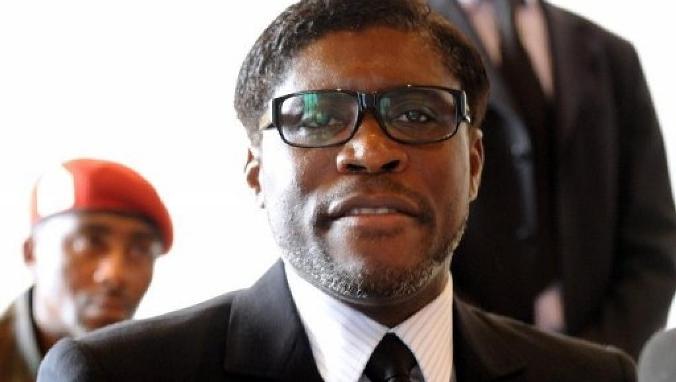
Guinea Ecuatorial/Francia
Daniel Finnan (9/9/2016)
French court has dismissed a defamation case brought by Equatorial Guinea’s Second Vice President Teodorin Obiang against the weekly news magazine L’Express. Vincent Hugeux, co-author of the article at the centre of the legal challenge and the magazine’s Africa editor, told RFI that the French judiciary on Friday threw out Obiang’s attempt to sue for slander.
Could you tell us more about the decision by the French courts to dismiss the defamation case against L’Express?
So, on Friday the 17th court of the tribunal in Paris, the one which is specialised in media affairs, decided to dismiss Obiang’s suit against L’Express, my weekly magazine. It all started with a profile of Teodorin Obiang, the Second Vice President of Equatorial Guinea, which was published something like two years ago and obviously which sounded a little critical, if not ironic or even sarcastic. They decided to sue us under a defamation action considering that it was detrimental to his reputation.
This is not the first defamation case that’s been heard in France with regards to Teodorin Obiang. Could you tell us a little more about the context?
Obviously it’s very clear that Teodorin is somehow a serial plaintiff. It’s something of a Pavlovian reflex that whenever his name is quoted in a critical story -and every story might sound critical to him – he would sue, and especially in France. Recently he has lost three or four different cases against magazines and even TV stations. So the context is this, let’s put it bluntly, the very concept of independence of justice is, as far as I know, alien to the political subculture of Malabo, of Equatorial Guinea. So, when the Obiang tribe [family] is dismissed – as happened again with us recently, and it happens most of the time – its members consider that either their lawyers are incompetent and they hire another cabinet [law firm] or they consider that they are victims of a political plot orchestrated by the Élysée Palace, by the French authorities. As long as they carry this kind of perception of the way justice works in our country – and we know that justice is imperfect, everywhere, including in France – but as long as they stick to this vision, obviously they will go to court and they will lose.
What implications do you think this has for the corruption case against Teodorin Obiang in France?
I have not seen the details of the judgement, but I know that, because I took part in the audience itself, roughly one month ago, and what the prosecutors said, is that our investigation was serious, professional, based on robust documents and substantiated with evidence and testimonies. Just to give you a short example – we produced 20 documents, reports, testimonies and so on and so forth, coming from France, coming from the USA, coming from Great Britain. The complaining party produced only one document and that was our story. So you can see how serious their behaviour was, judicially speaking.
Now, going back to the implications – it’s very clear that all the African heads of state, who have been, one way or another, quoted in what we call in France the biens mal acquis [ill-gotten gains] case, which refers to houses, palaces, cars acquired in France with public money, they have developed extreme sensitivity to whatever is said or written about that. Because obviously you have a civil society and I would say civil societies in Africa, which are more and more demanding and more and more inclined to act, including in the public space, so they [African heads of state] need to justify themselves. You know the old trick of the post-colonial revenge or the neo-imperialist plot is not working anymore. It doesn’t work in their countries. It doesn’t work on the international chessboard. You know the problem, when you ask the question, ‘why do they sue systematically?’ Are they perfectly aware that there’s a very slim chance to win the case? I think the answer is simple. If they win only one case, out of 15 or 20, it’s enough, because they can live on that and their propaganda will use it every morning and every night. They can live on for two or three years. I think that it’s not so important for them, and what I’m saying about Obiang is also valid with Bongo in Gabon, with Sassou Nguesso in Congo [Brazzaville] and so on and so forth. That’s probably the rationale behind this obsessive behaviour towards the free press.
Fuente: RFI.
N. de la R.
Recogemos este artículo de RFI tal y como ha sido publicado, en el idioma francés, en el que se da cuenta de que Teodorín Nguema Obiang, hijo del presidente de la República de Guinea Ecuatorial, Teodoro Obiang Nguema, será juzgado por presunto blanqueo de dinero procedente del pueblo guineano.
Da la impresión que en esta ocasión –no como pasó en Estados Unidos, donde Teodorín negoció con la Fiscalía su libertad- el hijo del presidente guineano puede ser condenado.
